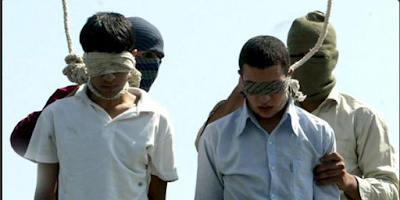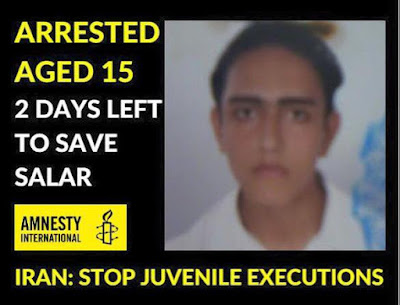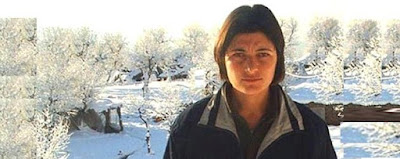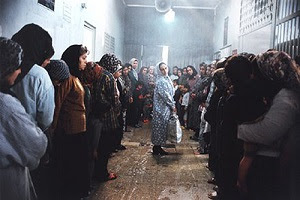Saturday marks the 27th anniversary of
the massacre of 30,000 political prisoners in Iran. In the summer of 1988, one
month after Ruhollah Khomeini was forced to accept a cease-fire in his
eight-year war with Iraq, the fundamentalist ruler of the mullahs’ regime
ordered a mass execution of all political prisoners affiliated with the main
opposition groupPeople’s
Mojahedin Organization of Iran, PMOI(Mujahedin-e Khalq, MEK).
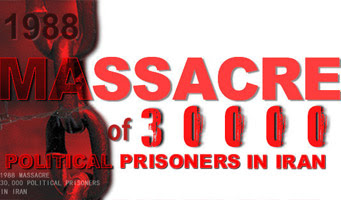 |
| 30,000 political prisoners |
The brutal prison massacre, which has
been described by some international human rights lawyers as the greatest crime
against humanity that has gone unpunished since the Second World War, saw the
execution of some 30,000 defenseless prisoners.
Near the end of the Iran-Iraq war,
Khomeini who felt that defeat was imminent, decided to take his revenge on the
political prisoners. He issued a fatwa (or religious decree) ordering the
massacre of anyone who had not repented and was not willing to collaborate
fully with the regime.
Khomeini decreed: "Whoever at any
stage continues to belong to the Monafeqin (PMOI) must be executed. Annihilate
the enemies of Islam immediately." He added: "Those who are in
prisons throughout the country and remain steadfast in their support for the
PMOI are waging war on God and are condemned to execution...It is naive to show
mercy to those who wage war on God."
The Iranian regime has never
acknowledged these executions, or provided any information as to how many
prisoners were summarily killed. Young girls, old parents, students, workers,
and many of those who had already finished their sentences prior to 1988 were
among those who vanished in the span of a few months. Their bodies were dumped
into mass graves, including in Khavaran Cemetery near Tehran.
Khomeini had assigned an "Amnesty
Commission" for prisoners. In reality it was a "Death Commission:
comprised of the three individuals: A representative of the Ministry of
Intelligence, a religious judge and a prosecutor. Most trials lasted for just a
few minutes and resembled more of an interrogation session. The questions were
focused on whether the prisoner still had any allegiances to the PMOI (MEK),
whose supporters made up more than 90 percent of the prisoners. If the
prisoners were not willing to collaborate fully with the regime against the
PMOI (MEK), it was viewed as a sign of sympathy to the organization and the
sentence was immediate execution. The task of the Death Commission was to
determine whether a prisoner was an Enemy of God or not. In the case of Mojahedin
prisoners, that determination was often made after only a single question about
their party affiliation. Those who said "Mojahedin" rather than the
derogatory term "Monafeqin" (meaning hypocrites) were sent to the
gallows.
None of the perpetrators of the 1988
massacre of political prisoners in Iran and none of the regime's senior
officials including the Supreme leader, Ali Khamenei, have been brought to
justice to date.






